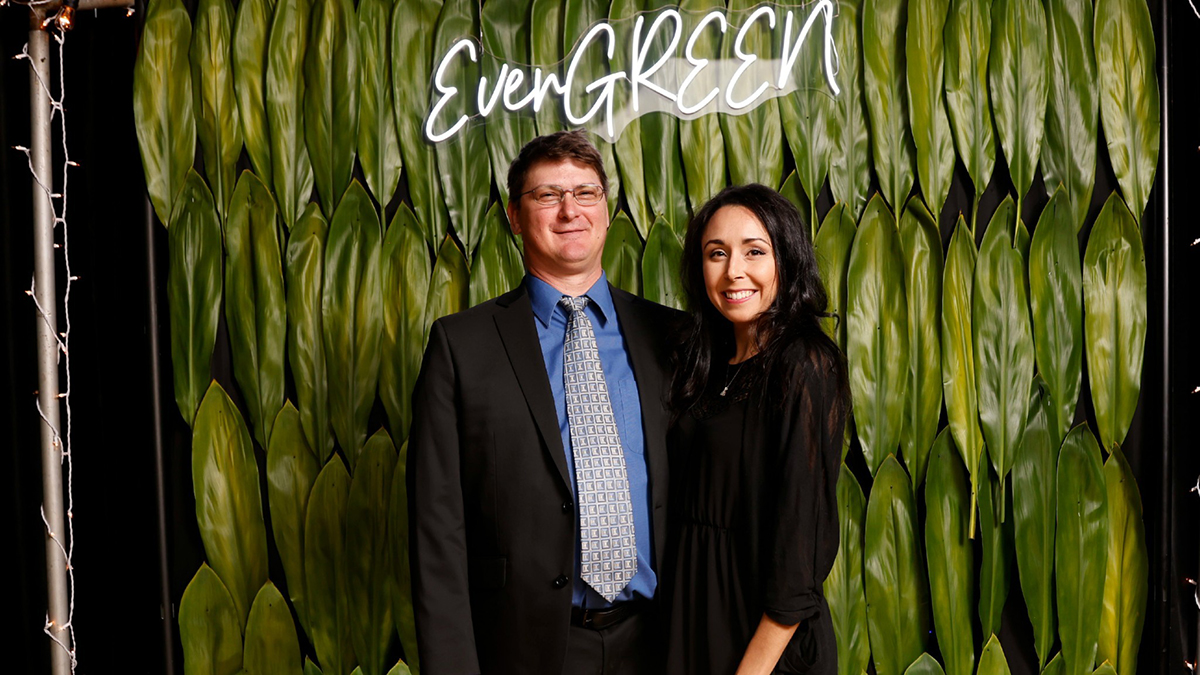After a long night of studying for her final exams, 28-year-old Marcy Brooks decided to call it a night. Then the unthinkable happened.

After a long night of studying for her final exams, 28-year-old Marcy Brooks decided to call it a night. The early darkness of late November signaled to her that it was time to get ready for bed. She knew she had her finals in the bag. After raising three children, acing her geology 1010 exam wouldn’t be a problem.
It was November 28, 2017, and Brooks was almost done with her first semester at Utah Valley University (UVU). She sacrificed, studied, and worked diligently to get to where she was.
Then the unthinkable happened.
Brooks’ husband, Ryan Brooks, first recognized the troubling signs as the two prepared for bed: confusion, drooping features, difficulty speaking, and trouble walking. His emergency first responder training immediately told him that his wife was experiencing a stroke.
“Everything that I worked so hard for was erased in that span of three hours,” Marcy Brooks said. “My knowledge from high school all the way up to college — gone.”
Brooks’ doctors later confirmed that she was indeed experiencing a stroke, a cardiovascular phenomenon uncharacteristic of someone her age. Her physicians would go on to tell her that the blockage was caused by holes between the chambers of her heart, triggering a major stroke alongside 19 ancillary strokes. She would have to undergo surgery to prevent any further damage to her heart or brain.
“It was all really scary,” Ryan Brooks recalled. “I'm sitting there thinking, ‘Okay, what can I do immediately right now?’ I kind of kick into a mode of, ‘Okay, this is my wife. I'm going to do everything I can possibly do within my power to make her better.’ That was kind of my focus at that point in time.”
The road ahead of Marcy Brooks was paved with challenges. She had to relearn how to walk, speak, read, and do basic math. Yet Brooks forged ahead on her road of challenges with a vigor that belied her current state of health.
Ryan Brooks recalled such a moment of vigor during her recovery.
“I told her, ‘You need to take some more time — you need to take the time you need to heal,’” he said. “She was like, ‘Nope; I'm going to get right back to school, and I'm going to get my finals taken care of at the very minimum.’ The very minimum. I told her that I don't think it's a good idea, but she turns around, spends less than a year recovering basically, and goes back and kicks her finals in the butt.”
“My mom didn’t raise me to be a quitter,” Marcy Brooks said.
As she began her physical therapy to relearn basic reading, Brooks elected to bring her own curriculum. She walked into the physical therapist’s office, college textbooks in hand, and slapped them on the table, ready to read.
“I gathered up all my geology books, math books, everything,” she said. “I took them to my physical therapist, and I told them that we're going to sit down and we're going to study so I could come back to school.”
The following May, Brooks took the finals she had been studying for prior to her stroke.
“I aced them,” she said. “I got all A’s.”
Going back to school had always been Brooks’ dream, and now that her youngest was in preschool, that dream could become a reality at UVU. Her fascination for the environment found its natural outlet in UVU’s Environmental Science Program.
“I really had the desire to finish school,” Brooks said. “I wanted to contribute to our family income and things like that. I found UVU, and they have a robust Environmental Science and Management Program where I really was interested in learning more about careers in the environmental side of earth science.”
Eddy Cadet, a UVU environmental science and management professor, is an albatross when it comes to taking students under his wing — and a fan-favorite among students in the College of Science. Cadet felt inspired by Brooks’ perseverance as she navigated her life-altering challenge.
“My heart just collapsed when I heard the news about Marcy,” Cadet said. “I told her, ‘Whatever I can do for you, I will do it. I can give you a W at this point, and then when you come back, you can make it up, and I’ll work with you, even if I do it on a personal basis.’”
Following Brooks’ recovery, Cadet recommended her for his research with the National Science Foundation (NSF) in Utah Lake during the summer of 2022.
“Marcy didn’t feel like she could be successful doing research,” Cadet recalled. “But she's very dedicated, very persistent, and I like that in a student. She was most dedicated to that particular project. She put everything else aside. So, when she had to go to collect fish, collect samples from the lake, process those samples, that’s the only thing she was doing. Nobody was in the lab but Marcy. She would go over and beyond and was very thorough.”
Following another heart surgery and more physical therapy, Brooks completely recovered from her stroke. She will graduate from the College of Science in environmental science and management in December 2023. She is also making headway in the workforce, securing a summer internship with Savage Services, a transportation and logistics company, as an environmental technician for their safety and health department.
“I got the job offer on November 28, 2022, exactly five years after my stroke,” Brooks said. “I don’t know what to think, but I believe in signs now. I think this is right for me.”